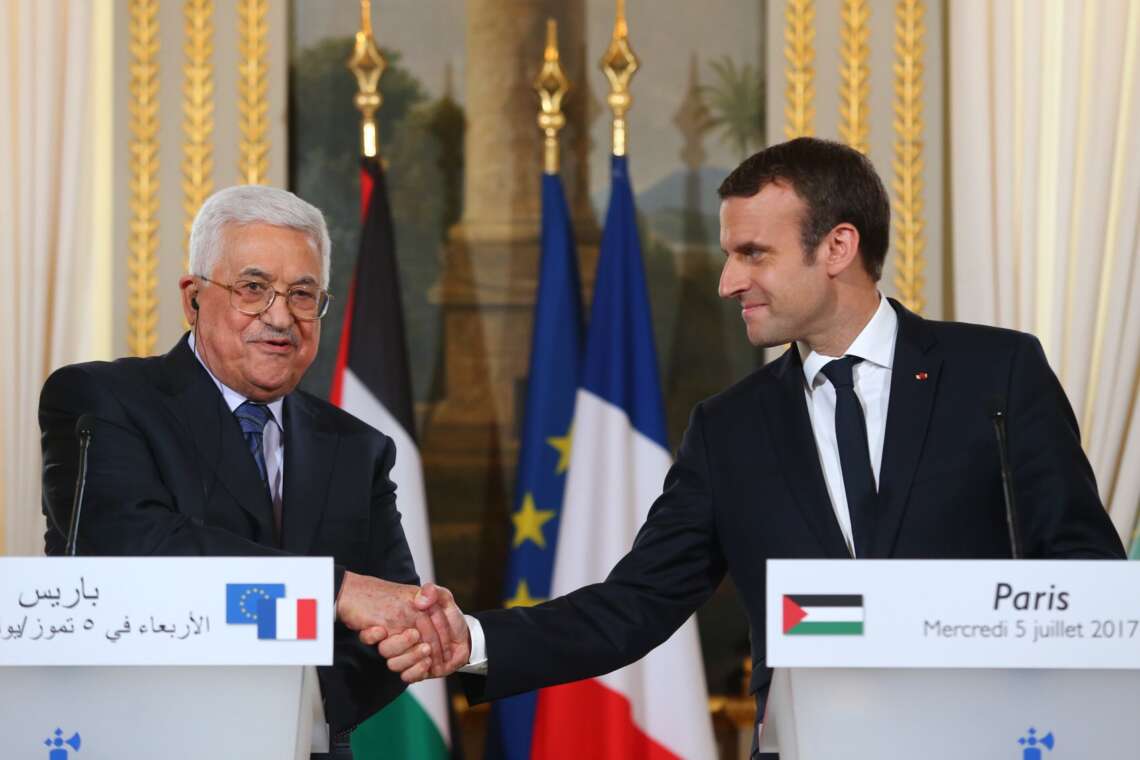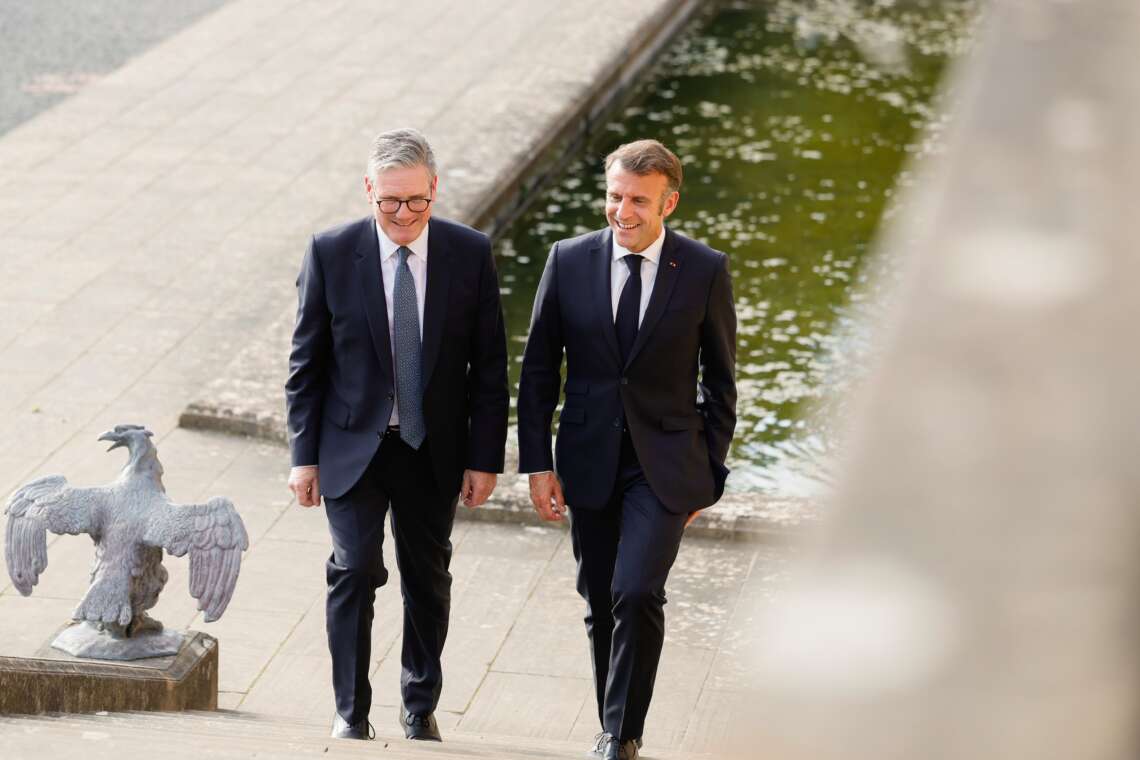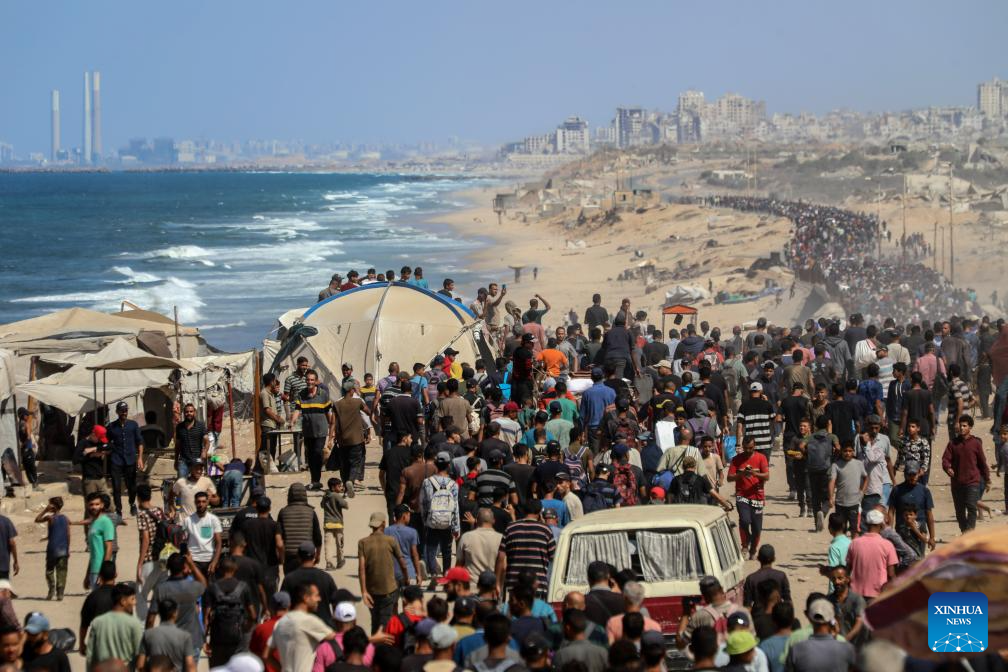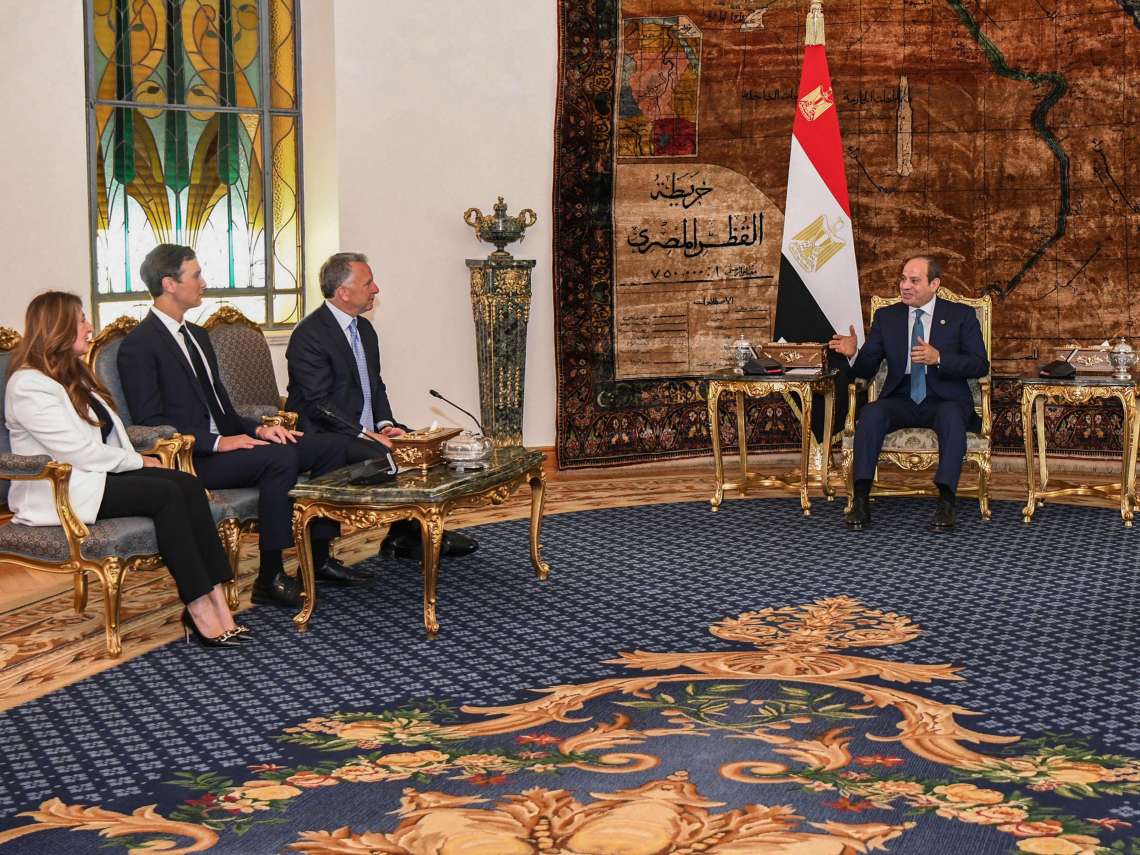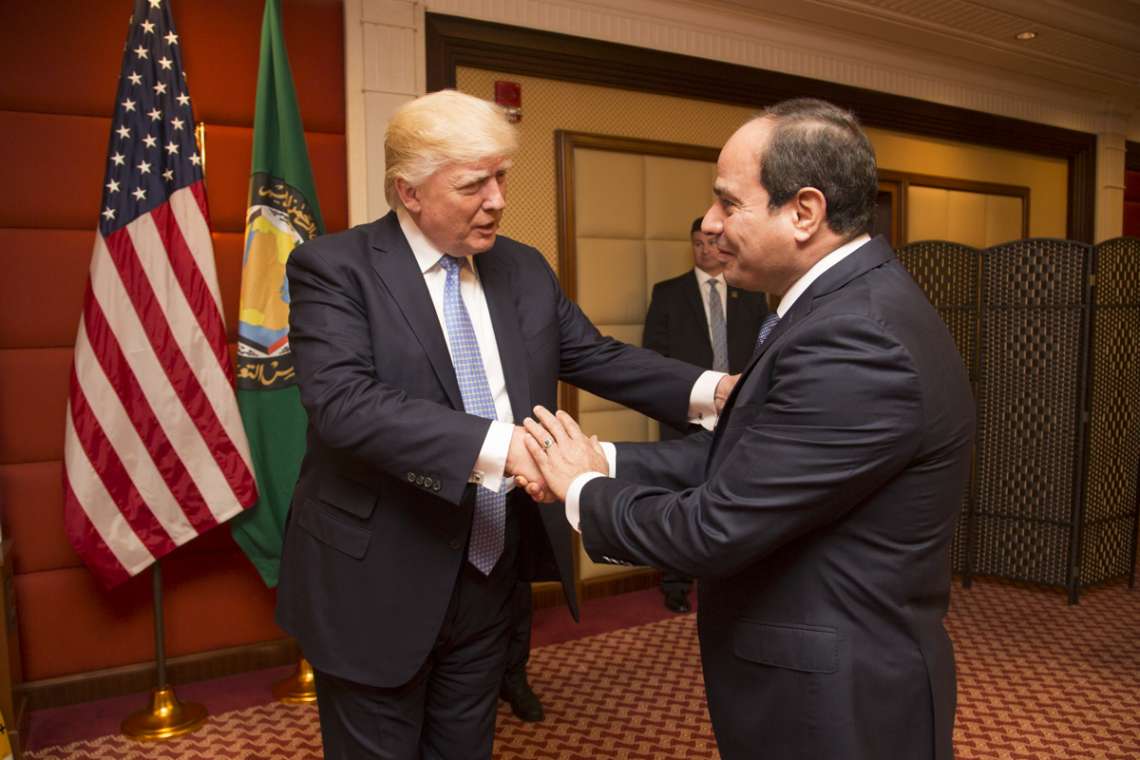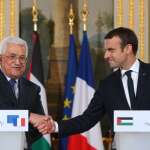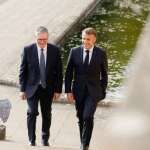Prince Mohammed said that bilateral discussions have stressed the mutual desire to enhance strategic partnership between the two countries…reports Asian Lite News
Saudi Arabia’s Crown Prince Mohammed bin Salman sent a cable of gratitude to French president Emmanuel Macron, following his official visit to Paris, the Saudi Press Agency reported early Friday.
“It gives me great pleasure, as I leave your friendly country, to express to Your Excellency my deepest gratitude and appreciation for the warm reception and hospitality my accompanying delegation and myself received,” he said.
Prince Mohammed said that bilateral discussions have stressed the mutual desire to enhance strategic partnership between the two countries.
He said that the talks emphasized continuing coordination and consultations in all fields to achieve the interests of the two countries and peoples and promote security and stability in the region.
The crown prince arrived in Paris on Thursday and was welcomed by Macron at the Elysee Palace, where a wide-ranging meeting headed by the French president and crown prince followed. The French leader also hosted a banquet for Prince Mohammed and his entourage later in the day.
Prince Mohammed bin Salman also met with the UNESCO director general and discussed Saudi cultural initiatives and ways to enhance bilateral cooperation.
David Rigoulet-Roze, associate researcher at the Institute of International and Strategic Relations, is of the view that the crown prince’s visit “is part of a resumption of contact with Europeans in general, in the context of the war in Ukraine and the ensuing energy problem.”
Preparing for the post-oil period, on June 2 the informal alliance of OPEC and non-OPEC oil-producing countries, sometimes referred to as OPEC+, agreed to increase production by 216,000 barrels per day in addition to the 432,000 bpd set in previous months.
However, this increase does not seem to be of a sufficient level to reassure Europeans, especially as winter approaches.
It is therefore necessary to continue efforts to alleviate the effects of the embargo on Russian oil imports, says Rigoulet-Roze. The natural gas sector is also under pressure, so “it is hoped that the Gulf countries will lend a sympathetic ear to the pleas for energy supplies.”
If Europeans need to secure their energy supply, for the Gulf countries it is, above all, a question of preparing for the post-oil period.
“Europe in general, and France in particular, hopes that the petromonarchies will prove receptive to their requests for guaranteeing hydrocarbon supplies. The Gulf countries, for their part, would like to develop synergies with Europe on this subject,” Rigoulet-Roze told Arab News en Francais.
“In this context, Europe and France have expertise, particularly with regard to renewable energies, whether green hydrogen, solar, wind.”
Regarding the burning Middle East geopolitical issues and the deadlock in Iranian nuclear negotiations, the picture is not so clear. “Overall, it looks like the JCPOA renegotiation will be difficult to finalize and that is what the US now thinks due to a proven form of obstruction on the part Iran,” Rigoulet-Roze said.
“It is in this context that US President Joe Biden’s tour took place, focused in particular on the establishment of a regional security system in which Saudi Arabia would constitute a central piece, even if Riyadh has not yet agreed to normalization of relations with Tel Aviv, unlike the fellow GCC members who have committed themselves to the Abraham Accords.”
Both the French and the Americans continue to say that they are in favor of signing a new nuclear accord with Iran, but time is running out, Rigoulet-Roze said, adding that President Macron reiterated the point a few days ago during a telephone conversation with Iranian President Ebrahim Raisi.
France has positioned itself in a way to maintain a channel of discussion with Iran, because it is not possible to cut ties. Macron adopts a similar approach vis-a-vis Russian President Vladimir Putin, believing that it is necessary, despite the circumstances, to try to keep the channels of dialogue open.
“This approach with President Vladimir Putin has been criticized because it has not necessarily been successful and it may be the same with Tehran. But he considers that it is still necessary to try,” Rigoulet-Roze said.
But if the Iranian nuclear deal were to eventually fall apart, what would happen the next day?
To Rigoulet-Roze, the problem is that Europe does not yet have a strategic identity, and is “not a partner” like the US.
“It will therefore be necessary to return to the strengthening of the regional architecture envisioned by the US, with all the difficulties that this implies,” he said.
The US would like to set up a kind of Israeli-Arab-Sunni NATO equipped with an anti-ballistic system to mitigate the growing threat of drones, and even missiles, of Iranian origin, used by Tehran’s proxies in Yemen or elsewhere.
The UAE indicated at the end of Biden’s Middle East tour that it does not intend to be part of any anti-Iranian axis. The same message, in a more modified way, has come from Jordan, according Rigoulet-Roze.
The tipping point will come only when it becomes clear whether the nuclear agreement will be saved or not “and until this is established, the different countries concerned will have difficulty in communicating their official positions with clarity,” Rigoulet-Roze said.
“The Iranians are stalling the process. It is becoming clear that we will not be able to finalize an agreement as we still hoped for at the beginning of 2021 when negotiations were relaunched,” he added.
ALSO READ-Crown prince’s visit puts Saudi-Greek ties in spotlight


